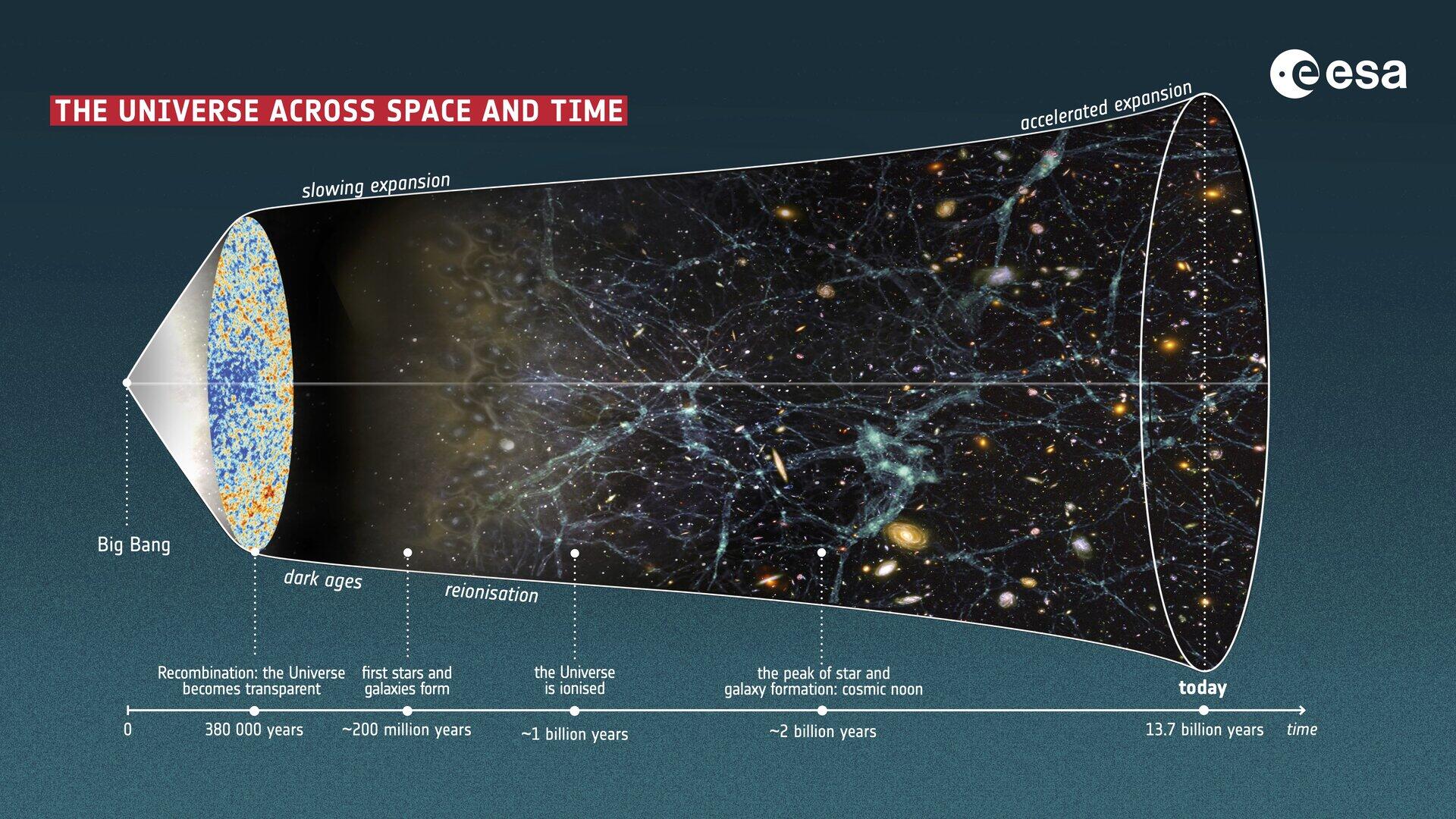Science
Astronomers Discover Evidence of Universe’s Slowing Expansion

A recent study conducted by astronomers suggests that the universe has entered a phase of decelerated expansion. This finding challenges long-held beliefs about cosmic growth and could represent a significant shift in the field of cosmology. The research highlights the concept of “Hubble residual,” which measures discrepancies in the expansion rate of the universe, and is supported by robust statistical evidence.
Professor Young-Wook Lee from Yonsei University in South Korea led the study, stating, “Our study shows that the universe has already entered a phase of decelerated expansion at the present epoch and that dark energy evolves with time much more rapidly than previously thought.”
The research builds on the discovery of dark energy, which was identified 27 years ago and has since been a pivotal aspect of cosmic studies. The implications of this new data could lead to a reevaluation of existing theories about the universe’s expansion. If confirmed, it would mark a major paradigm shift in cosmology that could redefine our understanding of the cosmos.
Understanding the Implications of Decelerated Expansion
Traditionally, the consensus among scientists has been that the universe is accelerating in its expansion due to dark energy. However, this latest finding introduces a new perspective, suggesting that the dynamics of dark energy may be more complex than previously understood. The study emphasizes the need for further investigation into how dark energy behaves over time.
The term “Hubble residual” refers to the observed discrepancies between the predicted and actual measurements of the universe’s expansion. By analyzing this offset, researchers can infer the age of cosmic structures and gather insights into the forces driving the universe’s growth. The strong statistical support for the findings indicates that this deceleration may not be a mere anomaly but rather a significant feature of the universe’s behavior.
The research raises crucial questions about the future trajectory of cosmic expansion and the role of dark energy within it. As scientists continue to explore these themes, the study paves the way for a deeper understanding of the universe’s history and its eventual fate.
Next Steps in Cosmic Research
The implications of this research extend beyond theoretical discussions among astronomers. Should these results gain broader acceptance, they could reshape how scientists approach the study of the universe. Future observational campaigns may focus more intently on gathering data related to dark energy and its evolving nature.
As the field of cosmology evolves, the findings from this study underscore the importance of continual inquiry and reassessment of established theories. With advancements in technology and observational techniques, astronomers are well-positioned to further investigate these groundbreaking claims.
In conclusion, the research spearheaded by Professor Young-Wook Lee and his team represents a pivotal moment in cosmological studies. By challenging the understanding of dark energy and the universe’s expansion, these findings could lead to a transformative shift in the scientific narrative surrounding the cosmos.
-

 World3 weeks ago
World3 weeks agoGlobal Air Forces Ranked by Annual Defense Budgets in 2025
-

 World3 weeks ago
World3 weeks agoMass Production of F-35 Fighter Jet Drives Down Costs
-

 Science3 weeks ago
Science3 weeks agoTime Crystals Revolutionize Quantum Computing Potential
-

 World3 weeks ago
World3 weeks agoElectrification Challenges Demand Advanced Multiphysics Modeling
-

 Top Stories3 weeks ago
Top Stories3 weeks agoDirecTV to Launch AI-Driven Ads with User Likenesses in 2026
-

 Lifestyle3 weeks ago
Lifestyle3 weeks agoDiscover Reese Witherspoon’s Chic Dining Room Style for Under $25
-

 Top Stories3 weeks ago
Top Stories3 weeks agoNew ‘Star Trek: Voyager’ Game Demo Released, Players Test Limits
-

 Entertainment3 weeks ago
Entertainment3 weeks agoFreeport Art Gallery Transforms Waste into Creative Masterpieces
-

 Business3 weeks ago
Business3 weeks agoGold Investment Surge: Top Mutual Funds and ETF Alternatives
-

 Health3 weeks ago
Health3 weeks agoGavin Newsom Critiques Trump’s Health and National Guard Plans
-

 Politics1 week ago
Politics1 week agoLanguage Evolution: New Words Spark Confusion in Communication
-

 Lifestyle3 weeks ago
Lifestyle3 weeks agoLia Thomas Honored with ‘Voice of Inspiration’ Award at Dodgers Event









